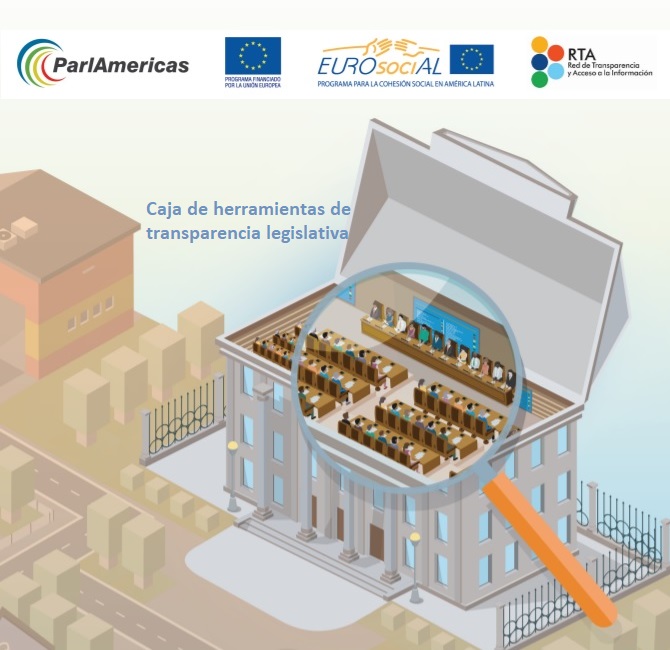The EU EUROsociAL+ Programme, through the FIIAPP Governance Area, the RTA and ParlAméricas have compiled more than 100 successful rapprochement experiences between institutions and citizens in a toolbox of legislative transparency best practices that covers 37 countries.

The Legislative Branch plays a crucial role in promoting a development agenda focused on people and their needs, which guarantees inclusive public policies with a gender perspective, through participatory and transparent processes.
The citizen empowerment and their monitoring of public affairs reduces the risks of corruption within the State and contributes to the achievement of the Sustainable Development Goals (SDG), especially SDG 16, focused on the promotion of “Peace, Solid Justice and Institutions”.
To promote these principles, inter-institutional and multi-level collaboration within each country, as well as cooperation between regional and international networks and organisations, is essential.
Legislative transparency makes it possible to improve democratic systems, making public information available to citizens for consultation in an open, accessible and reusable manner, which encourages the participation of society in the conception and drafting of laws.
Public information and institutional openness
Within the framework of legislative openness, and through efforts to translate the principles of transparency and access to public information, accountability, ethics and civic participation into specific actions adopted by its member parliaments, the European Union’s cooperation programme with Latin America EUROsociAL+, the Transparency and Access to Information Network (RTA) and ParlAmericas have developed a project called the Legislative Transparency Toolbox.
The purpose of this guide is to deepen the institutional opening up process and encourage the adoption of best practices in the Americas and the Caribbean, considering the processes, stages, standards, indicators and examples that facilitate its implementation.
The tools included in this document seek to contribute to the legislative and civil service work in the Americas and the Caribbean, as part of the effort to continue with the modernisation processes and with the open parliament agenda, even in complex scenarios such as that caused by the current COVID-19 pandemic.
This instrument includes five tools for legislative transparency:
- Active transparency. It is about making available to citizens the information considered relevant and of public interest about the organisation, its staff, its operation and the services it provides.
- Requests for access to public information. It refers to the presentation of a request for information before any public body, which is obliged to respond within an established time period and inform the requester thereof.
- Open data. Such data that can be freely used, reused and redistributed by anyone and that is subject to requirements of attribution and shared in the same way in which it appears.
- Communication and accessibility. It consists of disseminating and facilitating information through the management of its own channels. The sustained dissemination of content, in an accessible and usable way, enables citizens to interact with their political representatives.
- Document management. The implementation of the laws of transparency and access to information depend to a large extent on the quality, reliability, and accessibility of the public archives that safeguard said information. If such files are not organised or well managed, it will be difficult to determine the authenticity and integrity of the information stored in them, or to comply with the established deadlines for responding to the public and the administration.
Direct link to the Toolbox: https://eurosocial.eu/wp-content/uploads/2020/10/Transparency_Access_SPA.pdf



